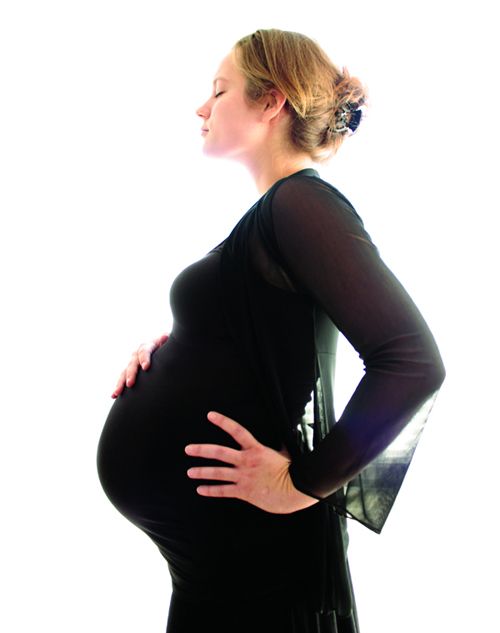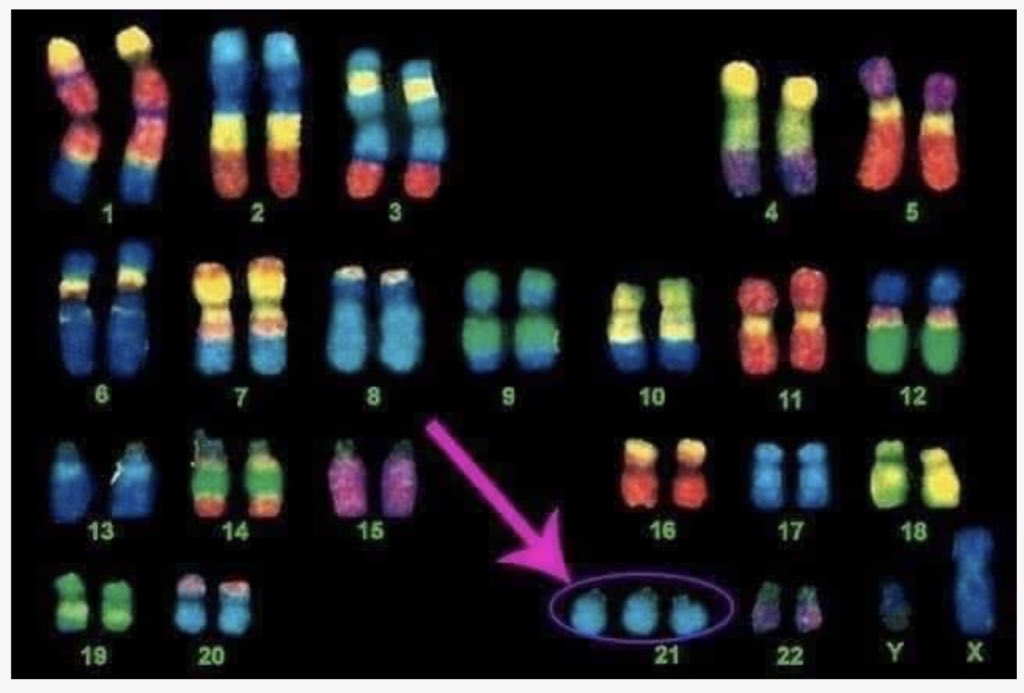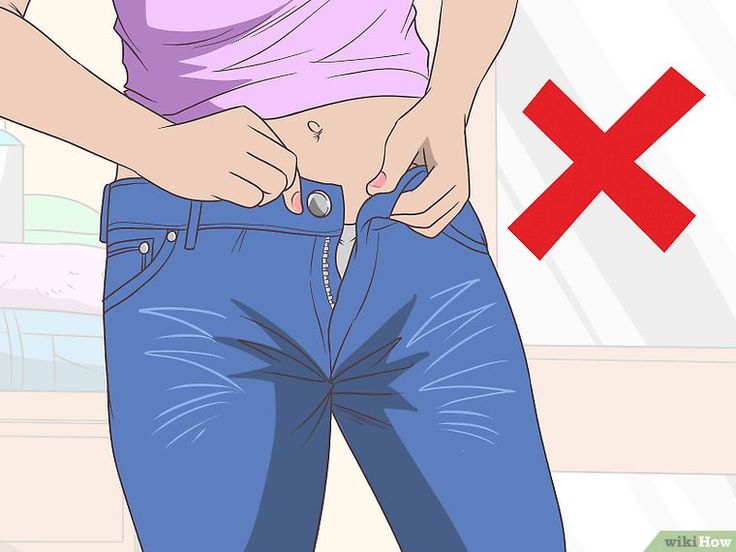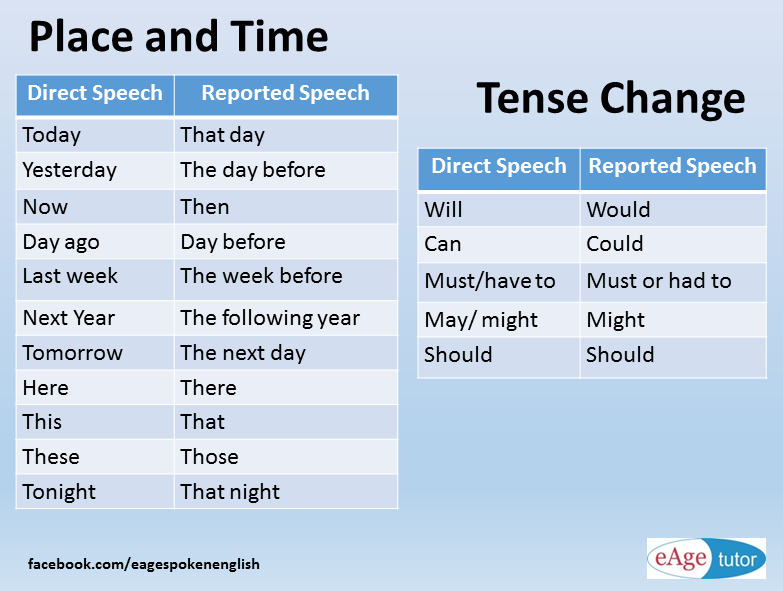Pregnancy 9 month symptoms
9 Months Pregnant: Symptoms and Fetal Development
Yes! The end of your pregnancy is in sight now, and the big day approaches. Keep in mind that your little one isn’t technically considered full term and ready for birth until 39 weeks and that only about 1 in 20 women give birth on their exact due date. So, you both may have a few more weeks of growing to do, but you’re almost there! Read on to learn more about the kinds of things that are in store for you when you’re nine months pregnant.
Common Pregnancy Symptoms at 9 Months Pregnant
When you’re nine months pregnant, some of the normal pregnancy symptoms you might experience include:
Frequent urination. This symptom might be getting a little old right about now, but as your baby continues to grow and drop lower into your pelvis in preparation for birth, she also continues to put pressure on your bladder. You’ll probably be making more bathroom trips during the day and also at night.
If you find that you’re leaking urine when you laugh or sneeze, you may want to wear a panty liner.
Swollen legs. It may seem as if every part of you is bigger now, including your legs and feet. In most cases, extra fluid retention and hormones are to blame. And, as your uterus grows, it puts pressure on certain veins, which can reduce or slow the flow of blood from the lower half of your body to the upper half. To get some relief, put your feet up whenever possible, and avoid standing for long periods of time.
Tingling or numbness in fingers and hands. If you feel a numbness or tingling in your hands or wrists, it could be carpal tunnel syndrome. The carpal tunnel is a system of bones and nerves on the palm side of your wrist. Increased fluid retention during pregnancy can put extra pressure on these bones and nerves, causing that tingling or numb sensation you’re feeling. This discomfort usually subsides after you give birth, but chat with your healthcare provider if you’d like to get some relief sooner.

Pelvic pressure. Just like you, your baby is also getting ready for her birth day. One of the things she is doing is dropping lower into your pelvis. For you, the downside of this is that you’ll likely feel more pressure on your pelvis, bladder, and hips. The upside is that you may be able to breathe a little easier, because as she drops she will likely put less pressure on your lungs and diaphragm.
Back pain. Another symptom you may be familiar with by the time you’re nine months pregnant is back pain. As your belly grows, your center of gravity changes. Meanwhile, pregnancy hormones relax the joints in your pelvis in preparation for childbirth. Both of these can cause back pain. To give yourself some relief, try to practice good posture (prenatal yoga can help with this), wear supportive, comfortable shoes, and avoid doing any lifting, if at all possible. A gentle massage or a well-positioned hot or cold pack can also feel good.
Pigmentation.
 You might be noticing some changes to your skin when you’re nine months pregnant. Those hormones coursing through your body during pregnancy can increase the production of melanin, which can result in brownish patches appearing on your face (known as melasma) or a dark line down the middle of your lower belly (known as the linea nigra).
You might be noticing some changes to your skin when you’re nine months pregnant. Those hormones coursing through your body during pregnancy can increase the production of melanin, which can result in brownish patches appearing on your face (known as melasma) or a dark line down the middle of your lower belly (known as the linea nigra). Stretch marks. These are a fact of life for many moms-to-be. They’re not preventable, but they often fade after you give birth. Use a gentle moisturizer to keep your skin hydrated and help ward off any itchiness that may come from your skin stretching as it expands to accommodate your growing baby.
RELATED PREGNANCY TOOL
Baby Name Generator
By gender:
Unisex
By theme:
Nature
Mythology
How Is Your Baby Developing This Month?
Your baby’s lungs develop right up until birth as they get ready for her first breath and that all-important first cry.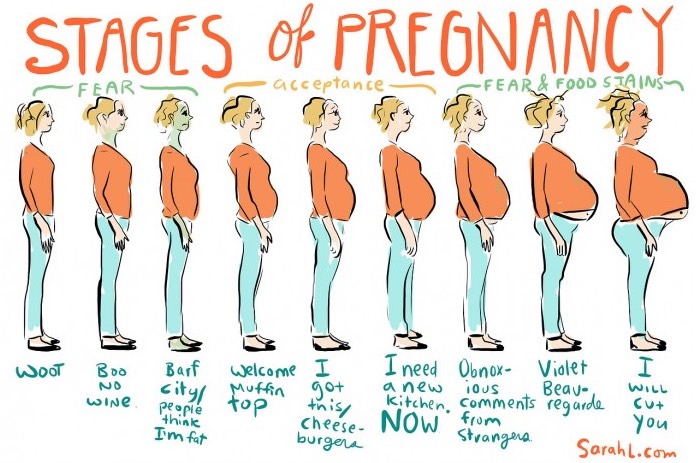 Soon you’ll be amazed by how much noise she can make! She’s also continuing to pack on a little more weight — as much as half a pound each week until she’s born.
Soon you’ll be amazed by how much noise she can make! She’s also continuing to pack on a little more weight — as much as half a pound each week until she’s born.
At 39 weeks, your pregnancy is considered full term. Read our explainer on full term pregnancy for all the information you need on what terms like preterm, early term, and late term mean.
How Is Your Baby Positioned When You’re 9 Months Pregnant?
At some point this month, most babies move into a head-down position, if they haven't done so already. This is called a vertex presentation. If your baby is positioned with her buttocks or feet first, this is known as a breech position.
If your baby is breech close to your due date, your healthcare provider may attempt to turn her into a head-down position manually; in some cases, you could be offered a cesarean birth if your provider thinks this is the safest option for you and your baby.
It’s also possible that your little gymnast may change positions on her own more than once before she’s born.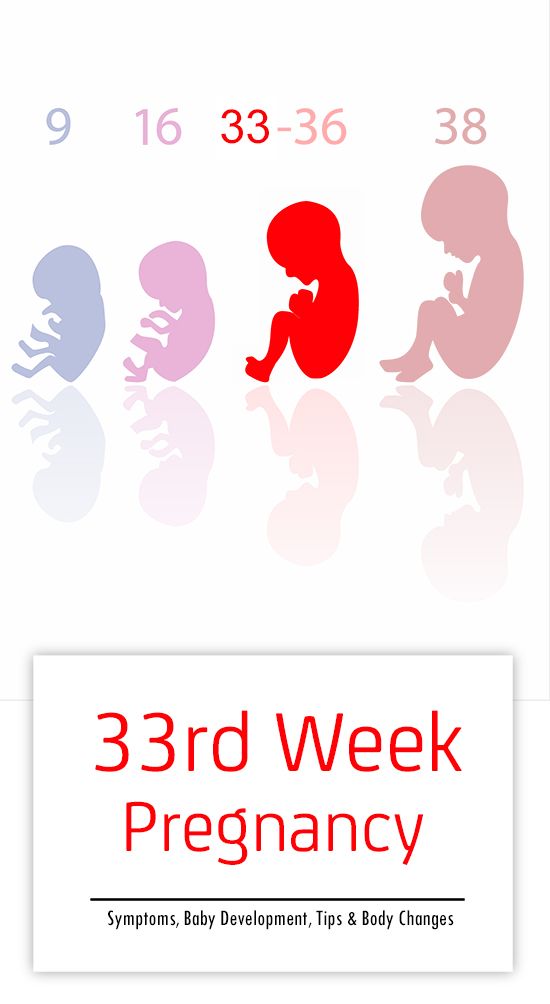 Your provider will be keeping an eye on her positions at your weekly checkups.
Your provider will be keeping an eye on her positions at your weekly checkups.
How Big Is Your Baby When You’re 9 Months Pregnant?
By the time you give birth, your baby will be about 18 to 20 inches long and weigh 6 to 9 pounds. Read more about the average baby birth weight and what factors can affect it.
What Does a Fetus Look Like at 9 Months?
Check out these illustrations for a glimpse at what your baby might look like when you’re nine months pregnant:
9 Months Pregnant: Your Body’s Changes
You might be feeling big, tired, and impatient at this point, and rightfully so!
At this stage of pregnancy, your healthcare provider may recommend a screening for GBS (group B streptococci), which are bacteria that can lead to urinary tract infections in moms-to-be, and, on rare occasions, can be passed to the baby as she moves through the birth canal during delivery. If your test is positive, you’ll likely be given an antibiotic during labor to help prevent passing the bacteria to your baby.
Cramps or contractions can be signs of labor at nine months pregnant, so it’s important to remember that there’s a difference between Braxton Hicks contractions, which are practice contractions, and the real thing. Here are a few of the main differences you might notice:
If your test is positive, you’ll likely be given an antibiotic during labor to help prevent passing the bacteria to your baby.
Cramps or contractions can be signs of labor at nine months pregnant, so it’s important to remember that there’s a difference between Braxton Hicks contractions, which are practice contractions, and the real thing. Here are a few of the main differences you might notice:
If your water breaks, or you notice mucus plug discharge, these are two other signs that your body is getting ready to go into labor.
How Far Along Are You at 9 Months Pregnant?
At nine months pregnant, you’re so close to the end of your third trimester and your pregnancy! You might still be wondering how many weeks nine months pregnant is. There is no simple answer, as the weeks of pregnancy don't fit evenly within nine distinct months. This final month could start anywhere from 33 weeks to 36 weeks and "end" somewhere around 40 weeks with the birth of your baby.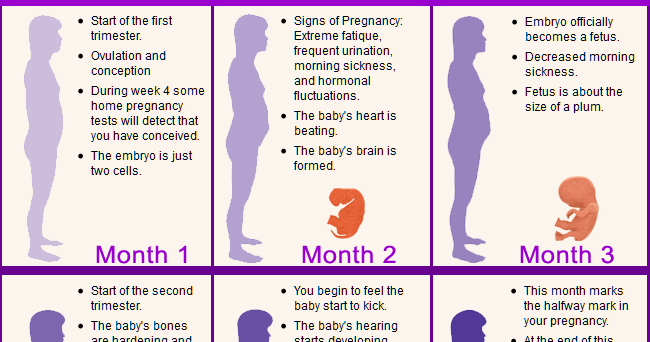
Checklist for When You’re 9 Months Pregnant
Ask your healthcare provider under what circumstances your labor might be induced.
Find out whether you’ll have access to things like a birthing bed, stools, chairs, balls, and pools during labor.
Pack your hospital bag and practice your route to the hospital. Download our hospital bag checklist for tips on what to pack.
Put any finishing touches on your baby’s nursery, double check you have all of these baby gear essentials, and finish any early baby proofing work you want to get out of the way now.
Read up on what may happen in the moments after you give birth like skin to skin contact with your newborn, and the APGAR test.
Start preparing for what you’ll need in the first few weeks and months after you bring your newborn baby home. Consider freezing some meals for later, asking friends and family for help with chores, and organizing child care for your older children.
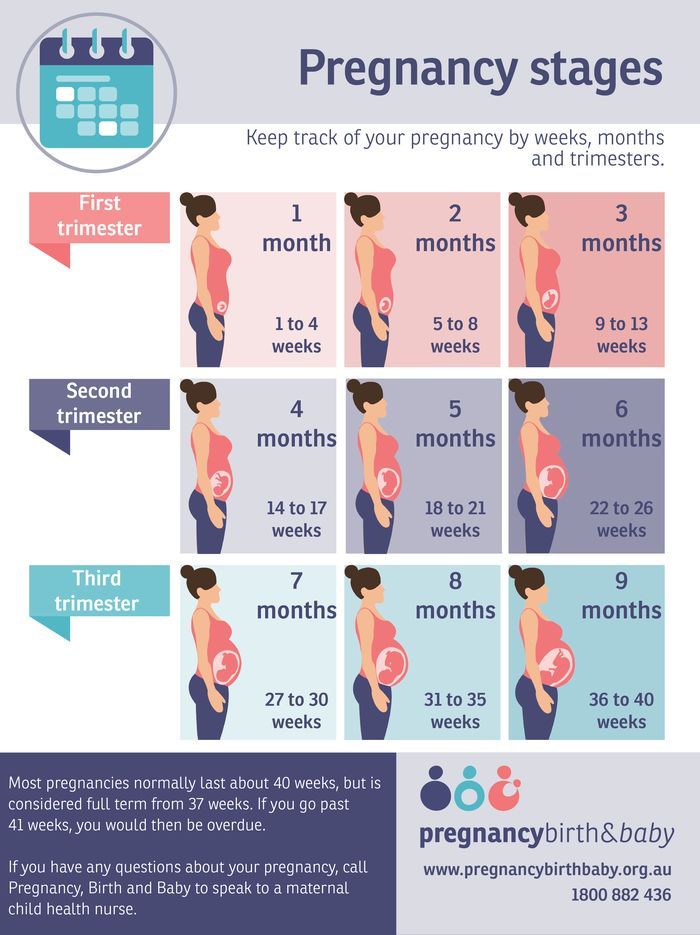
By the time your baby is born you’ll have been through a lot with pregnancy, labor, and childbirth all behind you. Read up on postpartum recovery so you’ll know what kinds of things are in store for you as your body heals after bringing a new life into the world.
Learn more about the diapers and wipes you’ll need when you bring your little one home. Our diaper size and weight chart can help you decide what to buy and how many diapers you’ll need when your little one makes her debut.
Check out the baby products that Pampers Parents recommend.
Because you’ve got a lot of diapers in your future, download the Pampers Club app to make sure you’re getting benefits from all those diapers you’ll be buying!
Sign up for even more weekly pregnancy tips here:
What Happens at 9 Months of Pregnancy?
In This Section
- Month by Month
- What happens in the second month?
- What happens in the third month?
- What happens in the fourth month?
- What happens in the fifth month?
- What happens in the sixth month?
- What happens in the seventh month?
- What happens in the eighth month?
- What happens in the ninth month?
- What happens in the tenth month?
When you’re 9 months pregnant, your fetus’s eyes and pupils are more developed, and it has more body fat.
What happens during week 33 - 34?
-
The fetus has a CRL of about 12 inches (30 cm).
-
The eyes have developed enough for pupils to constrict and dilate when exposed to light.
-
Lanugo is nearly all gone.
What happens during week 35 - 36?
What are the symptoms of pregnancy in the ninth month?
The growing fetus places more and more strain on your body when you’re 9 months pregnant. Common pregnancy symptoms at this time may continue through the end of pregnancy. These symptoms include fatigue, trouble sleeping, trouble holding urine, shortness of breath, varicose veins, and stretch marks. Some fetuses drop down into the lower part of the uterus during this month. This may relieve your constipation and heartburn, which is more common earlier in pregnancy. But some fetuses don’t drop down until the very end of pregnancy.
Was this page helpful?- Yes
- No
Help us improve - how could this information be more helpful?
How did this information help you?
Please answer below.
Are you human? (Sorry, we have to ask!)
Please don't check this box if you are a human.
You’re the best! Thanks for your feedback.
Thanks for your feedback.
We couldn't access your location, please search for a location.
Zip, City, or State
Please enter a valid 5-digit zip code or city or state.
Please fill out this field.
Service All Services Abortion Abortion Referrals Birth Control COVID-19 Vaccine HIV Services Men's Health Care Mental Health Morning-After Pill (Emergency Contraception) Pregnancy Testing & Services Primary Care STD Testing, Treatment & Vaccines Transgender Hormone Therapy Women's Health Care
Filter By All Telehealth In-person
Please enter your age and the first day of your last period for more accurate abortion options. Your information is private and anonymous.
Your information is private and anonymous.
I'm not sure This field is required.
AGE This field is required.
Or call 1-800-230-7526
The ninth month of pregnancy: what happens to the body of the mother and child and what tests need to be taken - Gynecology - tsn.ua
The ninth month is the last month of the third trimester. The baby is fully formed and ready to be born at any time.
The ninth month of pregnancy is the last month of the third trimester and lasts from the 36th to the 40th week. This is the last stage before a grand event - in recent weeks the baby is fully formed, so the expectant mother is no longer afraid of complications. Still 9The 1st month of pregnancy is not entirely ideal - in the last weeks, the state of health may worsen, and such unpleasant symptoms as back pain, fatigue, weakness - intensify. How to survive the last weeks of pregnancy?
Symptoms in the 9th month of pregnancy
The first thing you notice is an increase in back pain and frequent visits to the toilet.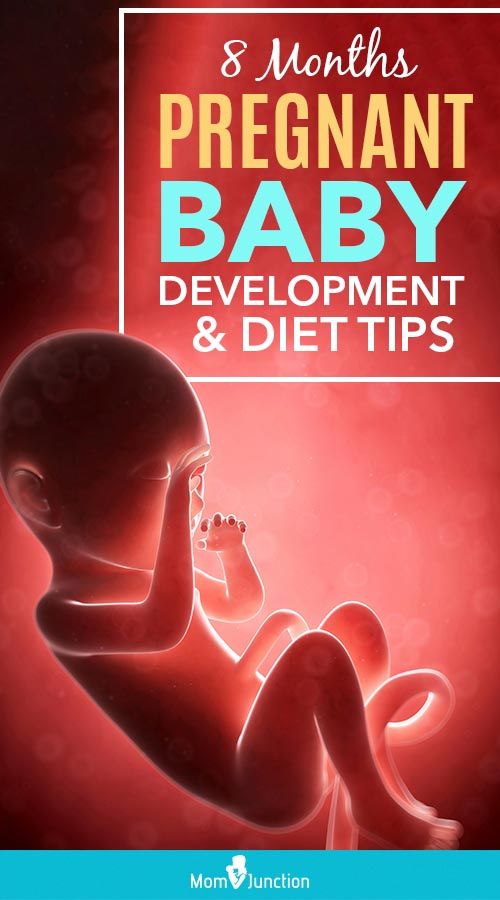 The baby puts more pressure on the bladder, hence the constant desire to urinate. There is also the stress and anxiety associated with childbirth, making it difficult to fall asleep at night.
The baby puts more pressure on the bladder, hence the constant desire to urinate. There is also the stress and anxiety associated with childbirth, making it difficult to fall asleep at night.
The second unpleasant symptom of pregnancy at the 9th month is swelling of the legs, especially the feet, and cramps, which increase at night.
Also read
The ninth month of pregnancy is characterized by the descent of the uterine fundus. This has its advantages - the pressure on the diaphragm and stomach decreases - it becomes easier to breathe, heartburn attacks and shortness of breath go away. But such a low position of the child can cause a deterioration in gait - swaying to the side, which will resemble a "duck gait", may appear.
Some women have thick yellow mucus coming out of their nipples towards the end of pregnancy. You should not worry about this, this is a sign that the body is preparing for lactation.
When it's time to go to the hospital: contractions are regular, occur every 5-10 minutes, more than 5 times an hour, or intensify as you move.
In addition to the physical signs of pregnancy in the ninth month, psychological ones may also appear. One of the interesting signs of pregnancy at the end of the third semester is the so-called nesting syndrome. Throughout pregnancy, a woman's body undergoes changes that prepare her for childbirth. Raging hormones change the hierarchy of values - meetings with friends, work and even relationships with the future dad lose their original meaning. The expectant mother begins to focus on the child, on making his life as comfortable as possible. Therefore, a woman often has a sudden desire to make repairs or do a general cleaning in the house.
Child's development at the 9th month of pregnancy
The child is fully developed and there are no major changes in his body.
At the end of the 9th month of pregnancy, the baby is very crowded and uncomfortable, so you can notice changes in his activity: he kicks less and fidgets more.
At this stage, the baby continues to train the necessary skills: inhales and exhales amniotic fluid so that the lungs are prepared for the first breath.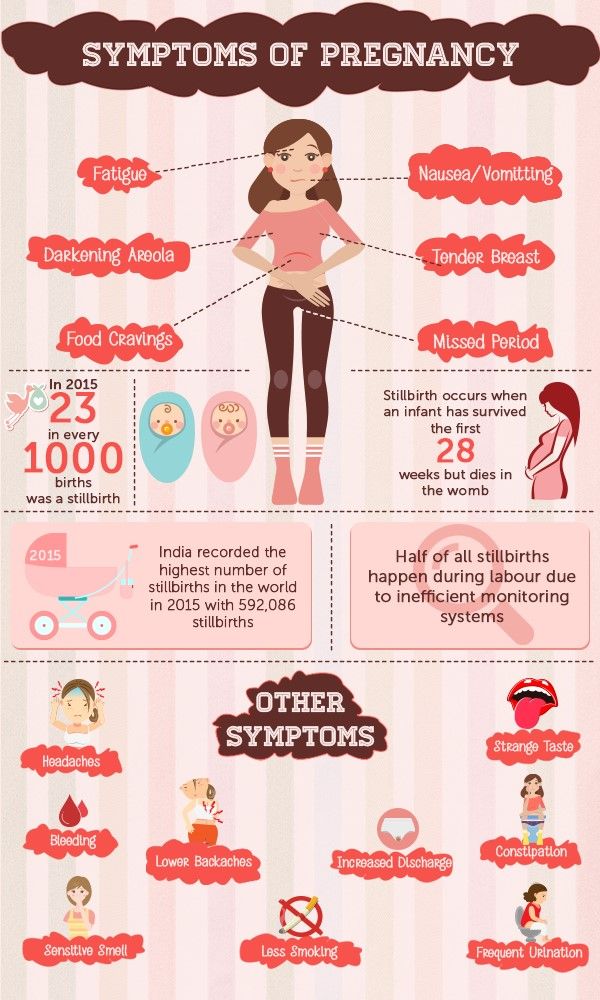
At the 38th week, the baby weighs about 3200 g and has a length of 50-52 cm. Since then, its length has not changed much, but the adipose tissue has increased, and with it the weight.
Tests at the 9th month of pregnancy
Which examinations should be carried out at the 9th month of pregnancy:
- urinalysis;
- biochemical blood test;
- obstetric examination with assessment of the cervix, uterine fundus and fetal position;
- assessment of fetal movements;
- assessment of the size of the pelvis;
- measurement of body weight and blood pressure;
- CTG and ultrasound (immediately after 40 weeks of pregnancy).
Also read
At the ninth month of pregnancy, one of the most important regular examinations is cardiotocography. CTG examination should be carried out every week and even every 2 days after exceeding the established due date for the birth of the child. The examination is carried out as part of intensive antenatal care, allowing early detection of dangerous conditions for the life of the fetus.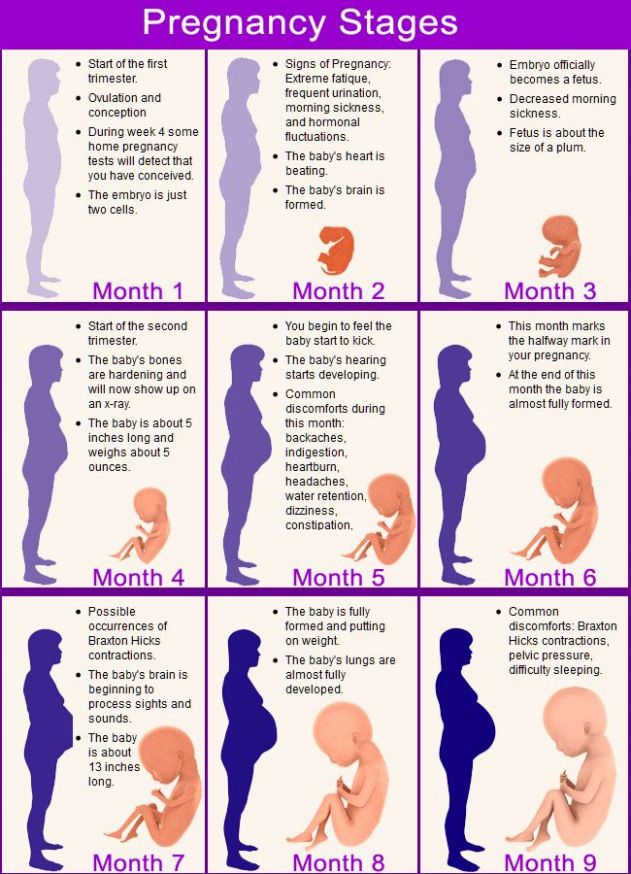
Delayed labor: when stimulation is needed
When the pregnancy approaches the 40th week, expectant mothers begin to worry: "how long to wait?", "how long will the absence of labor be dangerous for my baby?"; When is medical intervention necessary?
Also read
According to international standards, doctors wait a maximum of 10 days after the due date and then take measures to induce labor. And often such a simulation is extremely necessary, because pregnancy continuing after the 42nd week is associated with a risk of complications: the fetus does not receive enough oxygen and nutrients, which leads to the development of hypoxia.
Interesting! According to statistics, only 5% of births occur at the exact time. In other cases, the birth of a child is noted between the 38th and 42nd weeks of pregnancy.
Advice for women in the 9th month of pregnancy
Due to the fact that labor can begin at any time, you need to have everything you need to travel to the maternity hospital. It is imperative to take a packed bag with the necessary things for the expectant mother and the newborn to the hospital. Information about what should be in the bag can be found on the Internet, but it is better to check with the obstetrician-gynecologist leading the pregnancy.
It is imperative to take a packed bag with the necessary things for the expectant mother and the newborn to the hospital. Information about what should be in the bag can be found on the Internet, but it is better to check with the obstetrician-gynecologist leading the pregnancy.
See also:
- First month of pregnancy: what to do and what recommendations to follow
- The second month of pregnancy: a time of important changes in a woman's body
- Third month of pregnancy: a time of peace of mind and intense orgasms
- Fourth month of pregnancy: the end of toxicosis and the first movements of the baby
- Fifth month of pregnancy: the time when a special bond is established between mother and child
- Sixth month of pregnancy: swelling, constipation heartburn and insomnia
- Seventh month of pregnancy: baby rollover and Braxton Hicks contractions
- Eighth month of pregnancy: emotional swings and the search for a maternity hospital
How does the obstetric 9th week of pregnancy from conception proceed? The child is developing incredibly dynamically, and the expectant mother begins to get used to new sensations.
 It is necessary to carefully monitor your condition and implement certain instructions and advice.
It is necessary to carefully monitor your condition and implement certain instructions and advice. The ninth week of pregnancy: signs and sensations
The lady is constantly wishing to rest and take a nap. Getting up in the morning gets harder every day. Tiredness in the middle of the day, sharp mood swings - from sublime to everything that happens to decadent - are the main signs of this week.
Feelings at the ninth week of pregnancy:
- The woman will probably see some increase on the scales. This is the norm, as the body gradually begins to accumulate adipose tissue.
- The breasts fill up, the areolas of the nipples become more convex and darken.
- Dizziness or frequent urge to urinate is due to increased blood volume. Because of this sign, bleeding from the nose, bulging veins on the legs and arms are possible.
- Toxicosis continues or has just begun. If vomiting bothers a lady more than once a day, be sure to consult a specialist.
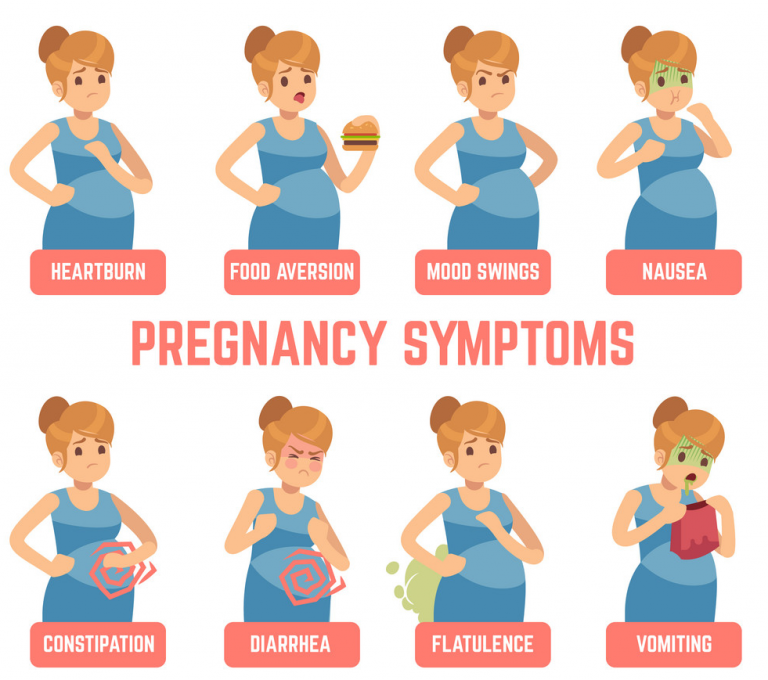
What are the physiological changes in the body at the ninth week of pregnancy?
For a woman:
As mentioned above, there is some increase in weight. Watch this carefully. Excessive weight gain during the period of bearing a baby is dangerous for the deterioration of health, the development of varicose veins and other troubles. But a small weight loss in the first trimester is listed by doctors as a variant of the norm. However, a woman needs to be sensitive to her own selection of food.
The uterus has grown expressively. This serves as a source of frequent urination. But these troubles are short - soon the uterus will rise higher and the pressure will drop.
The further, the more the hormonal background returns to normal, the state of health improves, and the vitality increases.
In the fetus:
The development of the baby is not delayed even for a moment. Therefore, make sure that the fetus receives a sufficient amount of useful substances, minerals, vitamins.
- Height is about 3 centimeters and weight is about 15 grams.
- The eyelids are almost formed and now close the eyes.
- The child straightens up a little.
- Some reflexes are formed, for example, swallowing.
- There is a laying of lymphatic and nerve nodes.
- Both lips are clearly visible on the small face of a child.
- The baby acquires a cerebellum.
Symptoms in the ninth week of pregnancy
The discharge in the ninth week of pregnancy from the vagina should be small, transparent, uniform, not containing mucus and blood. In the case of the formation of spotting, this is invariably the basis for calling for emergency medical attention.
The 9th week of pregnancy can be accompanied by all kinds of pain. If the pains are cramping and they are accompanied by spotting of brown or even red color - a reason to urgently call the doctor: there is a threat of miscarriage. But the pains associated with the intestines are easily eliminated, for example, with a no-shpa tablet, but also be sure to coordinate everything with the specialists.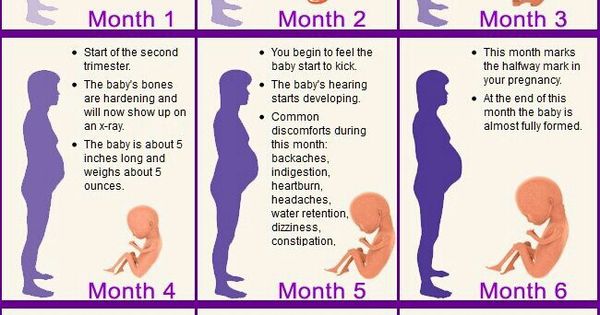
An expectant mother can notice a temperature of approximately 37.0 to 37.4C for a couple of weeks of an interesting situation. This is how the body responds to progesterone. If there are no other signs of the disease, the temperature is absolutely acceptable.
9th week of pregnancy: the belly is still growing a little. However, with a woman gaining weight and breast growth, the first stretch marks are likely to form. The general condition of the skin is varied. Some people develop acne, others note that the skin becomes soft and smooth.
Ninth week of pregnancy: tests
If the woman did not visit a gynecologist and did not take tests before conception in the previous week, then the following will be useful:0048
However, the optimal time for diagnosis and timing of pregnancy is 8 weeks after conception.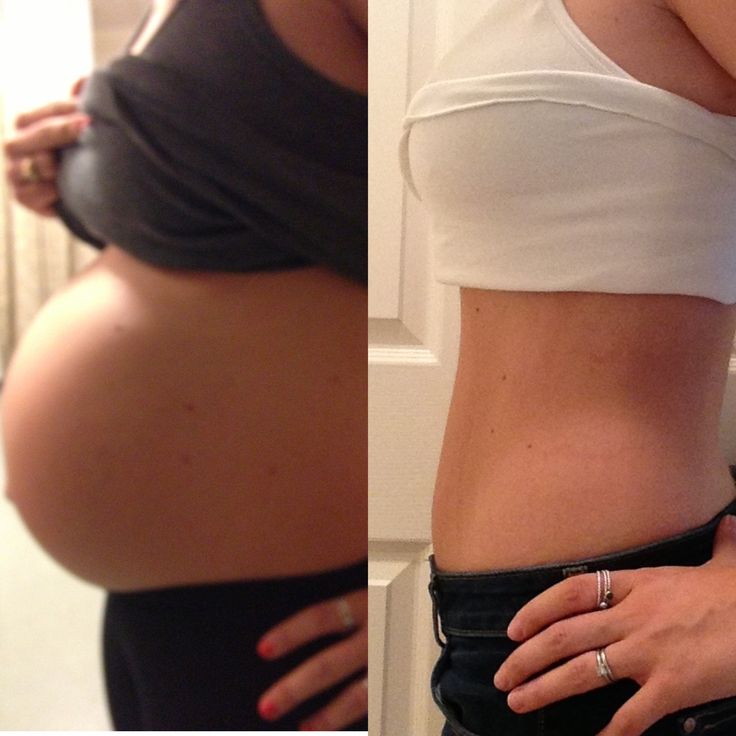
Ninth week of pregnancy: examinations
Often the first scheduled ultrasound examination takes place this week. An ultrasound photo at the ninth week of pregnancy will allow you to assess the condition of the baby, the uterus, determine the reliable term of conception, and show how a tiny heart beats.
Also, this examination will evaluate the child's motor activity, but the mother will be able to feel these movements only at the fourth or fifth month.
An ultrasound specialist must evaluate the condition of the corpus luteum.
Nutrition at the ninth week of pregnancy
Nutrition throughout the entire period of an interesting situation remains relatively the same. Correction of the diet by specialists is carried out according to the circumstances.
General rules:
- recommended to eat fatty fish, seafood, fruits, vegetables, cereals, nuts and dried fruits.
- fermented milk products;
- lean meats;
- buy or cook only natural sweets;
- prescribed by specialists - vitamins, iron and folic acid preparations.
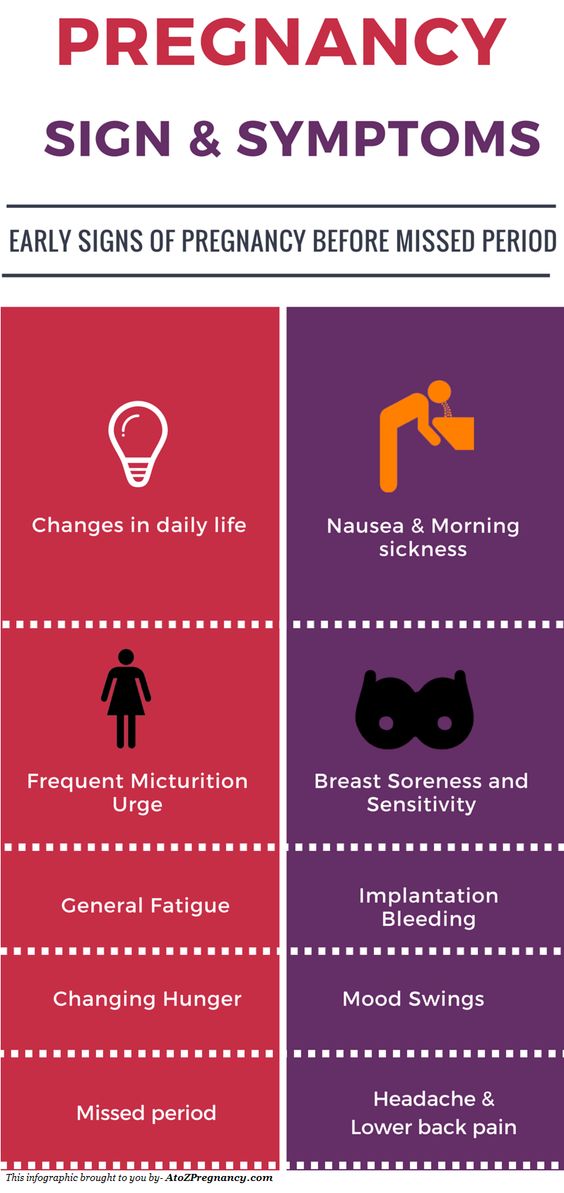
9th week of pregnancy: complications
Severe toxicosis threatens the woman's normal well-being. Here are the main signs:
- persistent nausea;
- vomiting more than twice a day;
- acute reaction to any food;
- weight loss, impotence, anemia.
Many pregnant women report bowel problems. One of the most annoying is constipation. Nutrition needs to be adjusted. Take any medication only after a doctor's prescription.
Unexpectedly, if toxicosis and other "pregnant" symptoms disappear, these are symptoms of the suspension of the baby's development. Frozen pregnancy at this time is a serious complication. It is necessary to make scrupulous researches and urgent medical measures.
The reasons for this are very diverse:
- genetic pathologies;
- irregular and unhealthy diet;
- bad habits;
- mother's distorted lifestyle;
- shocks, injuries.
9th week of pregnancy: recommendations and advice for expectant mothers
- Proper nutrition.
